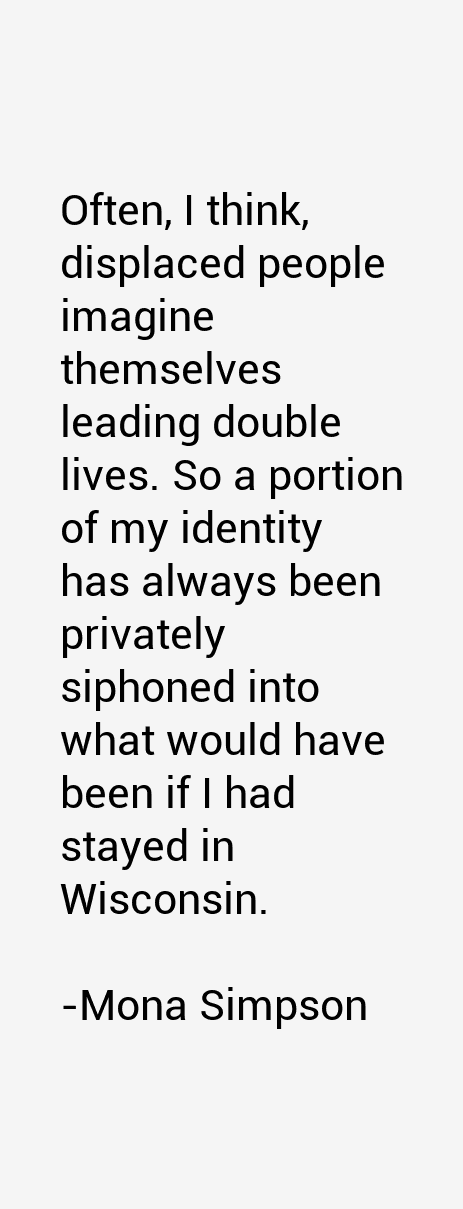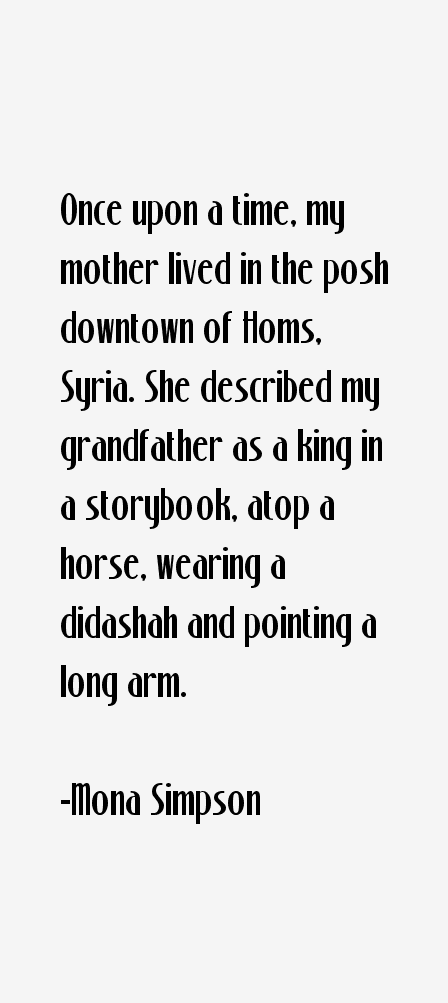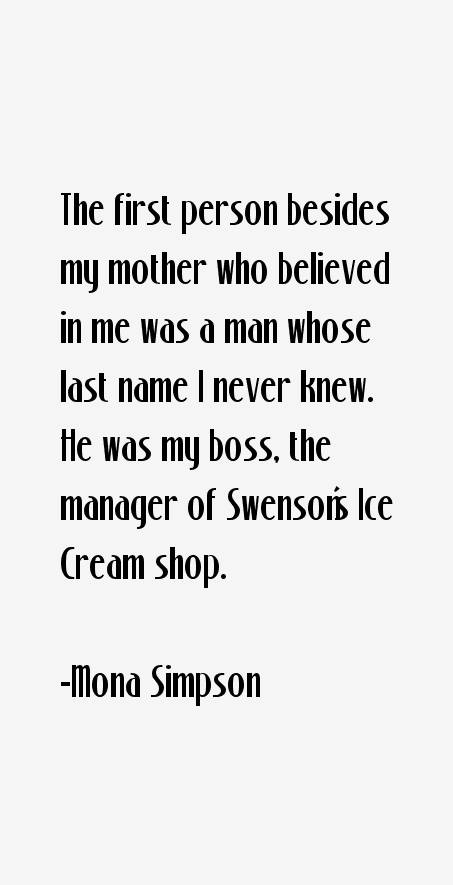Mona Simpson Quotes & Sayings (Page 3)
Mona Simpson quotes and sayings page 3 (68 year old author). Here's quote # 21 through 30 out of the 36 we have for her.
“If a mother is sitting in a chair at the office, someone needs to be at home with her child. In some cases, that is a father. Much of the time, the material manifestation of the conflict is a nanny.”
“In my 30s, I wrote in the back house of a ramshackle Spanish Revival we rented across from the ocean in the Santa Monica Canyon. I wrote thousands of pages there, but in order to see another adult human being, I had to steal out through the brambly side of the house, along the driveway down to the street.”
“In our national mythology, we seem to include only one-way migrations to the great capitol cities. The journey from the small Wisconsin town or Minnesota city to Chicago or New York or Los Angeles. Certainly for some people, that journey is a round trip.”
“Instead of a dedicated room, my best trigger is the actual habit of reading over the texts from the day before. Marking. Changing. Fussing. This ritual amounts to a habit of trust. Trust that I can make it better. That if I keep trying, I will come closer to something true.”
“It's a different thing to write a love story now than in the time of Jane Austen, Eliot, or Tolstoy. One of the problems is that once divorce is possible, once break-ups are possible, it can all become a little less momentous.”
“My first job was to run a concessions cart. Later, I found a position at the Pacific Film Archive. Thus began a long series of jobs, each one slightly better than the last, that continued for a decade, until I sold my first novel, and still goes on, even now.”

“My mother was a single parent, a speech therapist who worked for a company that kept a substantial percentage of the income they billed for her to teach stroke victims in convalescent hospitals to talk again.”

“Often, I think, displaced people imagine themselves leading double lives. So a portion of my identity has always been privately siphoned into what would have been if I had stayed in Wisconsin.”

“Once upon a time, my mother lived in the posh downtown of Homs, Syria. She described my grandfather as a king in a storybook, atop a horse, wearing a didashah and pointing a long arm.”

“The first person besides my mother who believed in me was a man whose last name I never knew. He was my boss, the manager of Swenson's Ice Cream shop.”
Mona Simpson Quotes Rating
No Ratings Yet
Leave A Comment
























